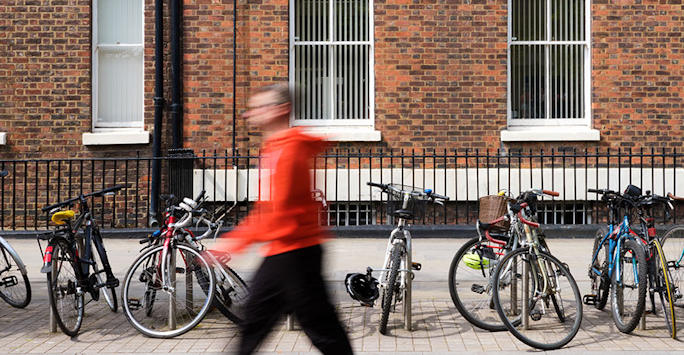
Whether it’s commuting to University, travelling to international conferences, or students going home at the end of the academic year, travel is one of the largest contributors to our Scope 3 emissions. Sustainability Programme Manager, Sally Shaw, explains the journey ahead for how we can cut our travel emissions and sets out some of measures which are in place to help us change how we get around.
Commuter and business travel
Travel emissions can be split into commuter and business travel. Most of what we know about staff and student commuting habits comes from travel surveys. “The last travel surveys were conducted pre-pandemic and given how much travel habits have changed since 2020 it’s critical that we run them again as soon as possible,” explains Sally.
This will be a key priority for the University’s new Environmental Sustainability Officer Alex Preugschat in early 2023, alongside work to promote and facilitate alternative ways of getting to campus for car users.
Season ticket loans and Cycle2Work are two examples of existing schemes set up to encourage sustainable travel behaviours. Expanding cycling infrastructure and working with Liverpool City Council to improve cycle lanes and working with the Knowledge Quarter to lobby for better public transport links to and from campus are also key priorities.
When it comes to business travel, historically this has been more difficult to measure. However, as Sally explains, the University’s new travel portal, Go2Book, will provide much needed information on how our colleagues travel for business. “Data from the portal will enable us to baseline our business travel emissions accurately for the first time,” she says.
A review of the staff travel policy and associated guidance is also being prioritised to ensure staff have access to up-to-date advice and guidance which can help them make more sustainable travel choices.
Ditching diesel and petrol
Electric vehicles also have a part to play in the University’s journey to net zero. “Electric cars are expensive, and this can be a barrier for many colleagues who might want to switch from a petrol or diesel engine,” adds Sally. “So we’re exploring salary sacrifice schemes for staff to benefit from reduced tax on the purchase of electric cars.”
Work is planned to improve infrastructure on campus for users of electric vehicles on campus, including for those based at Leahurst.
Working together to make an impact
Dr Carol Costello, Director of People and Services, has recently taken over as the Chair of the Travel and Transport Working Group, first established in 2020 to support the delivery of the Sustainability Strategy. Supported by the Sustainability Team, this Group will be tasked with encouraging both staff and students to change how, when and why they travel.
If you would like to know more about this Group or want to get involved in projects linked to changing our travel and transport behaviours, email sustainability@liverpool.ac.uk. You can also visit the sustainability webpages to find out more about initiatives to support sustainable travel.